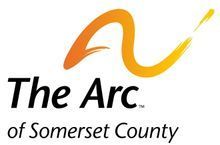

-
CARES ACT END OF 2020 GIVING
To encourage more charitable giving in 2020 and to help charitable organizations recover from the pandemic, the CARES Act provides additional tax relief for donors on their 2020 tax return. Below we explain the new above the line deduction and eliminated contribution limit for charitable giving.
ABOVE THE LINE TAX DEDUCTION FOR CHARITABLE CONTRIBUTIONS
As a result of the Tax Cuts and Jobs Act of 2017 (TCJA), fewer taxpayers were able to itemize and receive a tax benefit from their charitable contributions because of the increased standard deduction. In turn, some donors lowered the amount of their contributions. The CARES Act re-incentivizes charitable giving by creating a $300 above the line deduction for qualified charitable contributions. This deduction is available to all taxpayers that take the standard deduction on their 2020 return.This deduction is currently only available for 2020 contributions but could be changed by future legislation. To qualify, the donations must be in cash, not stock or donations of clothing or other property, and must be made directly to a qualifying charity, not certain private foundations or donor-advised funds.
ELIMINATION OF THE 60% CHARITABLE CONTRIBUTION LIMIT
Under the TCJA, individuals that itemize are allowed a deduction for cash contributions to certain charitable organizations of up to 60% of their Adjusted Gross Income (AGI). If the amount of the individual’s contributions is greater than the 60% limit, the excess is carried forward and treated as a deductible contribution for the next five years.Section 2205 of the CARES Act temporarily modifies the contribution limits for individuals and allows individuals that itemize to deduct qualified charitable contributions up to 100% of their AGI. The excess contributions will be carried forward for the next five years. These changes only apply to cash contributions made to a 50% charity, excluding supporting organizations and donor-advised funds. Stock donations and gifts to private foundations are still subject to the 30% of AGI rule.
OPPORTUNITY FOR IRA DISTRIBUTIONS
Eliminating the contribution limit creates a huge opportunity for donors who want to make a significant impact to charities this year. Under these rules, a donor could take a significant distribution from their IRA, rather than the annual $100,000 limit, donate it to charity, and take a deduction for the full amount. If you’re considering leaving a large portion of your IRA to charity in your estate, this may be a year to consider a large gift especially if you are expecting to have a taxable estate. You could benefit from tax savings and also see the benefits your charitable donation produces during your lifetime.TAXABLE INCOME PLANNING
More charitable contributions may allow some taxpayers to reduce taxable income to $0, which may sound very appealing. But that situation isn’t always ideal, especially if you have long-term capital gains and qualified dividend income. If you’re in the lowest two tax brackets, the federal tax on these income sources is 0%. If this is your situation, additional year end planning may be needed to make sure you’re maximizing your tax savings and coordinating with any existing charitable carryforwards.
Planned Gifts
Donors make planned gifts to charities for many different reasons, e.g, to: give something back; leave a legacy for future generations; support important social causes; and ensure that the programs and services of a favorite charity continue to benefit others. In turn, the advantages of making a planned gift may include: reduced current taxable income; elimination of capital gains tax; increased retirement income; and direct or indirect control over how charitable funds are spent, to name a few of the benefits to the donor.
Besides donating gifts of cash or securities, you can achieve your personal philanthropic goals for supporting The Arc of Somerset County through planned giving. With proper planning, charitable giving can offer many benefits the donor and recipient. Consult your attorney or tax advisor if you wish to donate using any of the options described below.
Beneficiary Designations
Beneficiary designations are an easy way to make a legacy gift to The Arc, without affecting your cash flow during your lifetime. Simply name The Arc of Somerset County as a full or partial beneficiary. Common designation options include: bequests; insurance policies; and retirement plans, to name a few.
Bequests, Remembering Us in Your Will
With your will or living trust you have the power to continue the tradition of caring and serving those with intellectual and developmental disabilities at the Arc of Somerset County as part of your life's legacy. Common bequest options include:
-
Specific bequest- Determine a specific dollar amount or asset that you wish to leave to The Arc Somerset County.
-
Residual bequest- After first taking care of loved ones, name The Arc of Somerset County to receive a percentage or all of your residuary estate.
-
Contingency bequest- Leave a portion of your estate to The Arc of Somerset County in the event that your named beneficiary does not survive you.
You can give needed support for The Arc of Somerset County by simply including the following wording in your will: "I give, devise and bequeath to The Arc of Somerset County (insert donated amount here) to be used to support the mission of The Arc of Somerset County."
A bequest can be a specific dollar amount, a specific piece of property, a percentage of an estate or all or part of the residue of an estate. Bequests are free of estate tax, and can substantially reduce the amount of your assets claimed by the government.
We encourage you to contact your attorney when drafting or amending your will.
Life Insurance
Donors can make a gift of life insurance by designating The Arc of Somerset County as the owner or beneficiary of a policy. When The Arc is named the owner of a paid-up policy or a policy with internal cash value on which future payments are owed, you may claim a charitable deduction. Contact your insurance company or a professional appraiser to determine the deduction amount.
Donors can also make outright gifts to The Arc to pay future premiums on a policy to keep it in force, which may result in additional charitable deductions.
As the cost of life insurance is only "pennies per dollar" of coverage, a gift of insurance becomes a practical way for an individual to make a sizeable donation to one's favorite charity at a modest cost.
Retirement Plan
Retirement assets (IRA, 401(K), Keough, etc.) paid to your heirs may be taxed up to 80%, but they are tax-free to a charity. In 2008 and 2009, donors could direct a tax-free, outright disbursement from their IRA to The Arc of Somerset County, which also counted toward the donor's minimum required distribution if s/he were age 70 1/2 or older. Contact your plan administrator/advisor if you wish to make a donation to The Arc from your retirement assets.
Life Income Plans
With a life income plan, you can provide yourself and loved ones with income for life, as well as income tax savings. Common life income plans include: Gift Annuities (fixed income), Deferred payment gift annuities (fixed income), Charitable remainder annuity trust (fixed income) Pooled income fund (variable income), and Charitable remainder unitrust (variable income) and others. All of these plans provide favorable capital gains treatment if funded with appreciated assets.
Charitable Remainder Trust
You may create a charitable remainder trust for The Arc of Somerset County by placing assets into a trust that will provide you a tax deduction and generate income today. The remainder of the trust passes to The Arc of Somerset County as a legacy gift.
Charitable Lead Trust
A charitable lead trust works in the opposite way. You may choose put assets into a trust and then allow income generated from it to go to The Arc of Somerset County for a specified period, while retaining the principal. When the trust terminates, the assets are returned to you.
Life Estate Gifts
You may receive tax benefits by donating a personal residence to the Arc of Somerset County, while continuing to live in it. A life estate gift combined with a life income gift, may result in the Arc of Somerset County providing you with income for life as well.
There are many different ways to achieve your philanthropic goals, while safe-guarding your assets, caring for loved ones and creating a life legacy that supports your favorite charity. The Arc of Somerset County staff will be happy to work you and your legal and financial advisors to develop gift planning to meet your needs.
-
SECURE: Setting Every Community Up for Retirement Enhancement
The Setting Every Community Up for Retirement Enhancement Act of 2019, better known as the SECURE Act, which originally passed the House in July, was approved by the Senate on Dec.19, 2019, as part of an end-of-year appropriations act and accompanying tax measure, and signed into law on Dec. 20 by President Donald Trump. The far-reaching bill includes significant provisions aimed at increasing access to tax-advantaged accounts and preventing older Americans from outliving their assets.1
The Arc of Somerset County Thanks Our Partnerships in the Somerset County Community:
-
 RWJ University Hospital Far Hills Race Meeting
RWJ University Hospital Far Hills Race Meeting -

-

-

-


